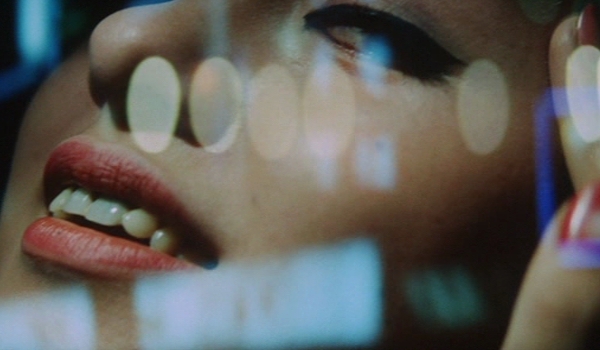Review: Pleasures of the Flesh (1965)
The Oshima’s Outlaw Sixties Eclipse set from the Criterion Collection is an essential addition to any ardent cinephile’s DVD collection. Each film in the set is as incredible as the last, and it does an amazing job of capturing the many facets of Oshima during this tumultuous decade. Oshima was going through a bit of an identity crisis during these formidable years, and found himself disillusioned with the leftist movements and alienated from the older generation. These were years of post-war rebuilding as Japan tried rediscover its own identity and find some way to recover from the damage that had been done to both national and individual identity. The film selections do a great job of conveying the range of Oshima’s abilities as they go from the absurdly surreal to the formally surreal, the stark contrasts of black and white to the Western pop Technicolor kitsch. His desire to use film as a tool for conveying the feelings that burned inside of him would set him at odds with the Japanese studio system. It wasn’t until he started producing his own work that his artistic vision had the necessary freedom to spread its wings and become some of the most original and influential work from the Japanese New Wave. Each film in the set takes its place in Oshima’s oeuvre and shouts strong arguments in favor of Oshima’s position in the film canon.
We start with the earliest film from the set, Pleasures of the Flesh. It is drenched in a kitschy Technicolor aesthetic that is perfect for capturing the fairy tale qualities of his stories of moral ambiguity. What on the surface would appear to be a run-of-the-mill Japanese gangster film becomes a powerful tool of activism as the foul deeds of girls and gangsters with guns are a reactionary response to the societal conditions of the time. Oshima protagonists are driven to morally ambiguous deeds, not because of irreparable flaws that live in the characters, but rather the irreparable flaws of an entire society. Oshima often explores the concept of two individuals surrounded by moral decay that turn to isolation and visceral thrills to dull the pain of a disillusioned existence. This marriage of subject matter and aesthetic create fantastical worlds of beautifully saturated flesh tones as lost souls turn to pleasure in lieu of painful introspection.
This heightened reality serves to slightly alienate the viewer as we are forced to view from just outside of an impenetrable but beautiful world of moral decay and sensual escapism. We don’t take a participatory role in the characters and their attempts to escape from their surrounding conditions, so we soak it in with an objective eye and get a strong indication of what Oshima was driving at with his favorite choice of subject matter. It is through this alienation that these films gain their power. We aren’t afforded an easy entry point in to this world of malaise and adjustment of national identity, so we are forced out and observe as voyeuristic travelers through a bygone era.















 Review: Outrage (2010)
Review: Outrage (2010) Subversive Saturdays: Unglassed Windows Cast a Terrible Reflection
Subversive Saturdays: Unglassed Windows Cast a Terrible Reflection Review: Hugo (2011)
Review: Hugo (2011) Review: The Muppets (2011)
Review: The Muppets (2011) Review: The Muppets (2011)
Review: The Muppets (2011)





